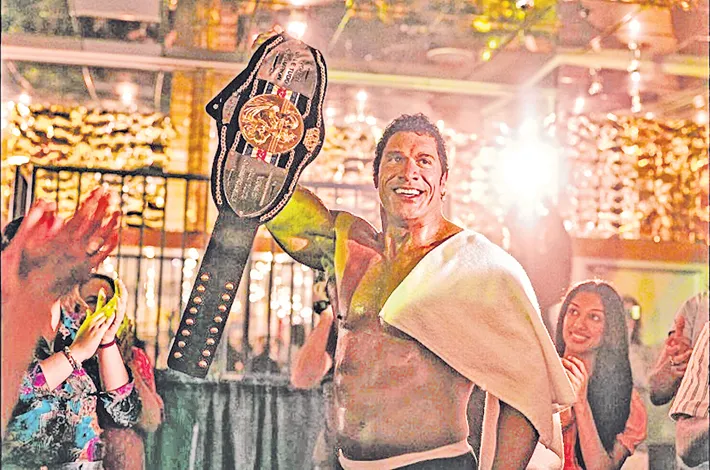Deepika voices work concerns
11-10-2025 12:00:00 AM

Deepika Padukone speaks out on demanding eight-hour work shifts, highlighting Bollywood’s gender double standards and calling for industry reforms
Bollywood actress Deepika Padukone broke her silence on the controversies surrounding her exit from Sandeep Reddy Vanga’s Spirit and Nag Ashwin’s Kalki 2898 AD sequel. Reportedly, Deepika, who is also a new mother, demanded eight-hour work shifts and when it was not fulfilled by the makers, she decided to quit the projects.
Recently, during an interaction with CNBC TV 18, Deepika Padukone stated that a lot of male actors have been working for only eight hours everyday since years.
Questioning the double standards of the film industry, she said, “By virtue of being a woman, if that’s coming across as pushy or whatever, then so be it. But it is no secret that a lot of superstars, male superstars, in the Indian film industry, have been working for eight hours for years and it’s never made headlines.”
She continued, “I don’t want to take names now and make this into a whole thing but it is very commonly, publicly known that a lot of male actors have been working for eight hours a day for years. A lot of them only work for eight hours Monday to Friday. They do not work on weekends.”
“While the Indian film industry is termed as an industry, we never really worked like an industry. We are a very disorganised industry. I think it’s time we bring in some system,” Deepika added.
Hansal Mehta slams industry for 12 hours day shift culture
Filmmaker Hansal Mehta criticised the industry’s work culture, pointing out that a 12-hour day is referred to as a ‘shift,’ while in reality, between chaotic shoots, endless commutes, rushed meals, and just a few hours of broken sleep, little remains for personal life. His remarks come in the wake of Deepika Padukone’s work-life balance debate, where she demanded an 8-hour workday after becoming a mother, sparking widespread discussion in the industry.
Taking to his X (formerly Twitter) on Friday, Hansal wrote, “Where does our mental health or physical well-being fit into this equation? Weekends are rarely weekends. Breaks are looked down upon. Somewhere along the way exhaustion became normalised and rest became a privilege. Sometimes I wonder: can this really be called an industry if it runs on the relentless draining of its people?”
Further, Hansal highlighted that the hardest hit are those with the least power, daily wagers, who are always the first to arrive and the last to leave, surviving in conditions that would be deemed inhuman anywhere else. On television, it’s even worse, and now OTT platforms and films have begun following the same pattern. He added that the arrival of global corporations is often celebrated with the belief that they will bring better systems. But more often than not, they simply adapt to the broken ones already in place, because it’s profitable.








